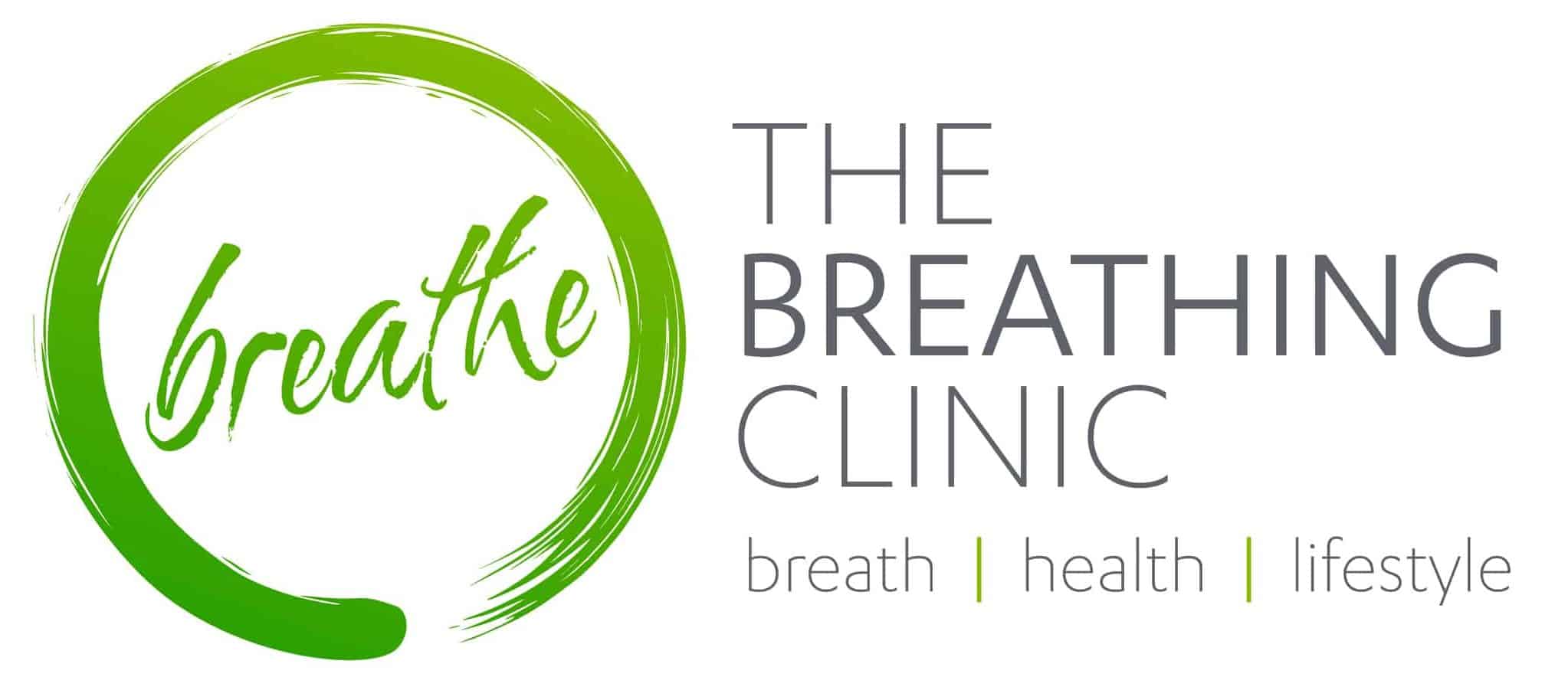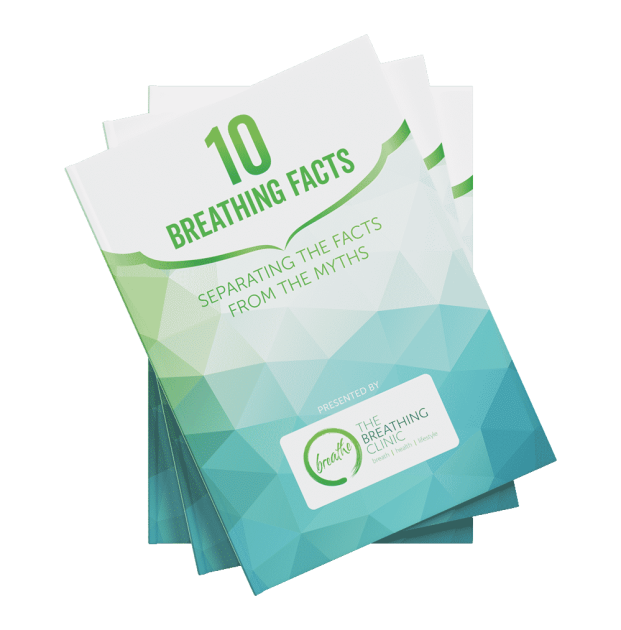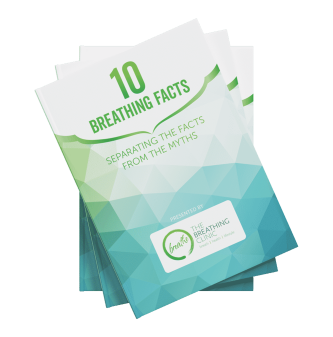When ENT specialist Dr Maurice Cottle (founder of the American Rhinologic Society, 1954) identified 30 reasons to nose breathe he did not mention nitric oxide (NO). That’s because the role of NO in regulating biological functions in humans was yet to be discovered. In 1998 researchers investigating the complex roles of NO within the body were awarded a Nobel Prize for their work. It has since been referred to as the third respiratory gas along with oxygen (O2) and carbon dioxide (CO2). Understanding the numerous nasal breathing benefits can significantly impact your overall health and immune function.
Scientists have previously highlighted the importance of nasal breathing in preventing the spread of infections, indicating that where facemasks fail, the nose may provide a natural filter for dangerous pathogens. It is relatively obvious that the nose filters, warms and humidifies air on its way into the body, whereas mouth breathing does not, but there is more to the nose than you might realise.
Nasal Breathing Benefits for Boosting Immunity
An ideal breathing pattern uses:
- nasal breathing at rest, when sleeping and up to moderate levels of physical exertion
- minute volume of 4 to 5 litres of air at rest, about 8 to 12 breaths per minute
- regular rhythmic breathing — very few sighs, yawns, coughs or catch-up breaths
- diaphragm breathing (80% at rest).
How Nasal Breathing Benefits Boost Immunity
An ideal breathing pattern helps boost immunity and fight infection in the following ways:
- Nasal breathing warms, filters and humidifies inhaled air before it reaches the lower respiratory tract.
- An optimal minute volume (MV) combined with nasal breathing helps reduce the load of inhaled pathogens.
- Lower MV and nasal breathing help maintain the delicate balance of gases, O2, CO2 and NO, in airways and blood.
- Lower MV means increased levels of both NO and CO2 which help soothe the nasal and lung mucosa, and mediate cellular defence.
- Both NO and CO2 are vasodilators and bronchodilators helping maintain airway and vascular tone, and ensuring oxygenated blood is delivered throughout the body.
- An optimal level of CO2 in arterial blood is essential for the delivery of oxygen from haemoglobin to cells in the body. This is known as the Bohr Effect, first described by Christian Bohr in 1904.
By contrast, breathing through the mouth upsets the delicate balance of gases in airways and blood, lowering NO, CO2 and O2. Mouth breathing also engages the secondary respiratory muscles and the sympathetic nervous system (SNS) — ‘fight or flight’ mode. When the SNS is dominant the immune system is down-regulated.
2 exercises to try
These exercises can help clear your nasal passages and boost your natural immunity.
Humming exercise
Here is a simple humming exercise you can do if you feel you’re coming down with a respiratory infection, sinusitis or are unwell. You can do it any time as a preventative measure to help boost your immunity. We associate humming with cheerfulness and you’ll notice that it’s difficult to hum and feel down at the same time.
Potential immune protective effects of NO and humming — humming exercise
Nose-clearing exercise
Some people breathe through their mouths simply through lack of awareness. For others there could be a physical impediment such as nasal congestion. Many habitual mouth breathers do so simply because they feel that they just can’t get enough air through their nose — this is particularly true in children.
The Nose — use it or lose it: Nose-clearing exercise
Mouth breathing and over-breathing are characteristic responses in times of stress. As breathing educators we work with people to help them pull out of this cycle and establish a more functional breathing pattern.
Often the first step in this process is to relieve nasal congestion. There are many interventions that can improve nasal breathing including reducing the consumption of dairy foods and refined carbohydrates. For quick relief we suggest you try this nose unblocking exercise.
Breathing for everyday activities
As mentioned earlier in this article, less is more when it comes to breathing — in the same way that good nutrition is not about eating more. A good start is the ability to breathe through your nose at rest and up to moderate levels of physical exertion, like climbing stairs, or if you’re fit, jogging.
Breathing when you’re asleep
You should also breathe through your nose when sleeping. You might be breathing through your mouth when you sleep if you:
- have symptoms like bad breath, a strong thirst, a dry mouth or a blocked nose when you wake up
- experience snoring, sleep apnoea or insomnia
- are restless.
The breathing pattern in your sleep is a mirror of your daytime breathing. The implications of this are that you probably have a dysfunctional breathing pattern which is not only impacting on your sleep quality, but potentially impairing your health and preventing you from experiencing the full nasal breathing benefits.
By understanding and harnessing the nasal breathing benefits discussed in this article, you can take a simple yet powerful step towards improving your immune function, sleep quality, and overall health. Start incorporating these techniques into your daily life to experience the transformative power of proper nasal breathing.
Further reading
Nasal Breathing and Nitric Oxide
Important note
Please note neither this post nor any linked articles claim that nasal breathing or humming prevent or cure COVID-19. However, now more than ever it makes sense both for physical and psychological reasons to take any steps that may improve our health. Like the advice to wash our hands frequently the advice to nasal breathe also gives us a sense that there is something we can do, a sense of control and anything that makes us feel less stressed is also good for our immune system.
About this post
Date of publication: March 2020
Authors
Nicky McLeod, BA, MBIBH, Breathing Educator
Glenn White, BSC, MBIBH, BBEA, Breathing Educator
About the Authors
Nicky McLeod is a Breathing Educator (certified by the Buteyko Institute of Breathing and Health) and director of The Breathing Clinic in Nelson, New Zealand. Nicky trained with Glenn White, NZ’s only practitioner trainer, and undertook further training with Tess Graham in Australia. By achieving a more functional breathing pattern while doing a breathing retraining course in 2016, Nicky was able to stop triggering life-threatening grand mal and partial complex seizures that she had had for 13 years following the birth of her first child. She has been medication- and seizure-free since then and spends a considerable amount of time working to raise awareness of breathing retraining as a health modality, both in the public domain and among health professionals.
Nicky McLeod — Breathing Clinic Nelson
Glenn White is a Buteyko Institute certified practitioner trainer and director of the Buteyko Breathing Clinic in Auckland, New Zealand. Glenn overcame a lifetime of asthma, allergies and recurrent respiratory infections after completing a Buteyko breathing course in the UK in 2000. He has been asthma, allergy and drug free since that time. Glenn has not had a respiratory infection requiring antibiotics since 2000. This is especially significant as the antibiotics had been a lifeline for almost 20 years in treating the constant bronchial infections that severely impacted his asthma. Overcoming a lifetime illness led Glenn to train as a Buteyko Institute practitioner in the UK, returning to open the Buteyko Breathing Clinic in New Zealand in 2001.
Glenn White — Buteyko Breathing Clinics
Acknowledgements
We acknowledge and thank our colleagues including Rosalba Courtenay, Patrick McKeown, Jill McGowan and Tess Graham for their invaluable and ongoing contributions about the importance of boosting natural immunity to prevent and overcome respiratory infections, including COVID-19.


